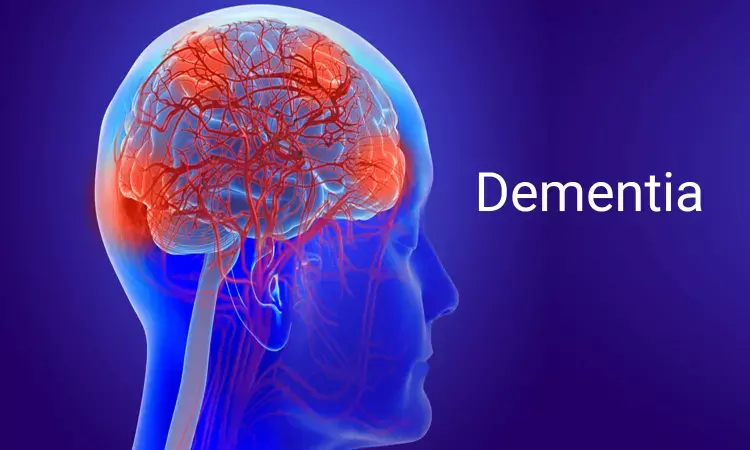- Home
- Medical news & Guidelines
- Anesthesiology
- Cardiology and CTVS
- Critical Care
- Dentistry
- Dermatology
- Diabetes and Endocrinology
- ENT
- Gastroenterology
- Medicine
- Nephrology
- Neurology
- Obstretics-Gynaecology
- Oncology
- Ophthalmology
- Orthopaedics
- Pediatrics-Neonatology
- Psychiatry
- Pulmonology
- Radiology
- Surgery
- Urology
- Laboratory Medicine
- Diet
- Nursing
- Paramedical
- Physiotherapy
- Health news
- Fact Check
- Bone Health Fact Check
- Brain Health Fact Check
- Cancer Related Fact Check
- Child Care Fact Check
- Dental and oral health fact check
- Diabetes and metabolic health fact check
- Diet and Nutrition Fact Check
- Eye and ENT Care Fact Check
- Fitness fact check
- Gut health fact check
- Heart health fact check
- Kidney health fact check
- Medical education fact check
- Men's health fact check
- Respiratory fact check
- Skin and hair care fact check
- Vaccine and Immunization fact check
- Women's health fact check
- AYUSH
- State News
- Andaman and Nicobar Islands
- Andhra Pradesh
- Arunachal Pradesh
- Assam
- Bihar
- Chandigarh
- Chattisgarh
- Dadra and Nagar Haveli
- Daman and Diu
- Delhi
- Goa
- Gujarat
- Haryana
- Himachal Pradesh
- Jammu & Kashmir
- Jharkhand
- Karnataka
- Kerala
- Ladakh
- Lakshadweep
- Madhya Pradesh
- Maharashtra
- Manipur
- Meghalaya
- Mizoram
- Nagaland
- Odisha
- Puducherry
- Punjab
- Rajasthan
- Sikkim
- Tamil Nadu
- Telangana
- Tripura
- Uttar Pradesh
- Uttrakhand
- West Bengal
- Medical Education
- Industry
Pimavanserin reduces symptoms of dementia-related psychosis in phase 3 trial

A large-scale trial has found a treatment with pimavanserin substantially reduced psychotic symptoms and reduced risk of relapse of those symptoms compared to placebo in people with dementia, a condition for which no treatments are currently licensed.
New data presented at the Alzheimer's Association International Conference indicates that pimavanserin leads to a robust reduction in the severity of psychosis symptoms during the 12 week open-label phase of the study, regardless of the underlying dementia subtype or the severity of participants' dementia.
The international phase three relapse-prevention trial was conducted in collaboration with the University of Exeter, working with Acadia Pharmaceuticals. The trial enrolled 392 participants who were experiencing hallucinations and delusions as a result of their dementia.
Up to half of the 45 million people worldwide who are living with Alzheimer's disease will experience psychotic episodes, a figure that is even higher in some other forms of dementia. Psychosis is linked to a faster deterioration in dementia, and is disturbing for the individual and carers.
Currently there is no approved safe and effective treatment for these distressing symptoms associated with dementia-related psychosis. In people with dementia, widely-used antipsychotics lead to sedation, falls, and can double the speed at which brain function deteriorates.
Pimavanserin works differently, by blocking a very specific nerve receptor (5HT2A) in the brain. Now, it has been found to effectively reduce symptoms of psychosis in people with Alzheimer's disease and other dementias, without evidence of some of the common side effects observed with other antipsychotics.
Clive Ballard, Professor of Age-Related Diseases at the University of Exeter Medical School, who co-authored the research presented at AAIC, said: "Psychosis is a common and extremely disturbing symptom which has a severe impact on the lives of people affected by dementia. We urgently need treatments that work, and I'm excited by the potential of pimavanserin to make a real difference."
Hina Zahid Joined Medical Dialogue in 2017 with a passion to work as a Reporter. She coordinates with various national and international journals and association and covers all the stories related to Medical guidelines, Medical Journals, rare medical surgeries as well as all the updates in the medical field. Email: editorial@medicaldialogues.in. Contact no. 011-43720751
Dr Kamal Kant Kohli-MBBS, DTCD- a chest specialist with more than 30 years of practice and a flair for writing clinical articles, Dr Kamal Kant Kohli joined Medical Dialogues as a Chief Editor of Medical News. Besides writing articles, as an editor, he proofreads and verifies all the medical content published on Medical Dialogues including those coming from journals, studies,medical conferences,guidelines etc. Email: drkohli@medicaldialogues.in. Contact no. 011-43720751


